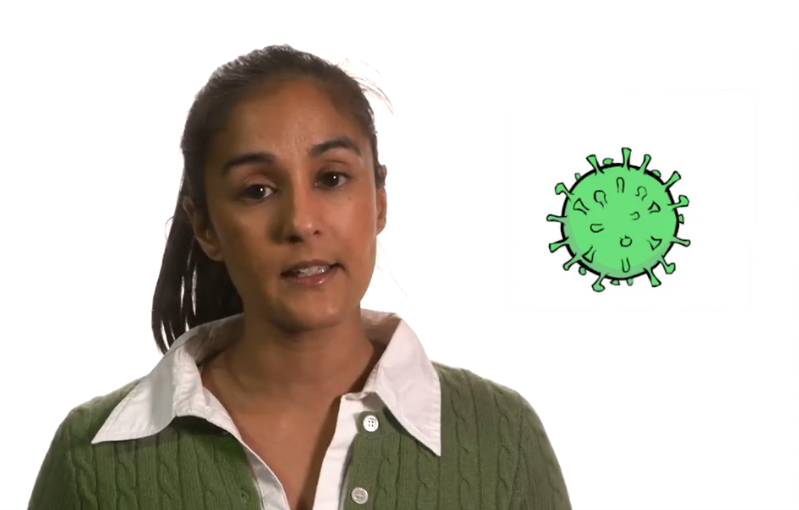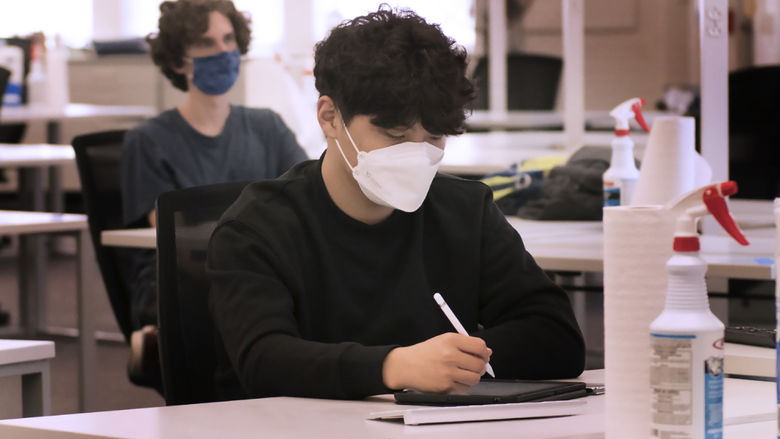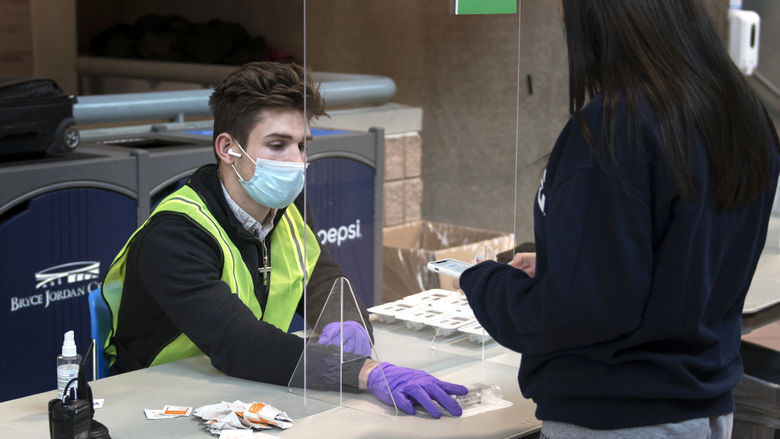
Created by Penn State biology faculty members NIta Bharti and Matthew Ferrari in collaboration with WPSU, the video “What does the end look like?” discusses the uncertain future of the COVID-19 outbreak and the possible scenarios for its end.
UNIVERSITY PARK, Pa. — How will COVID-19 end? Matthew Ferrari and Nita Bharti of the Penn State Center for Infectious Disease Dynamics (CIDD) explore this question in a new video produced in collaboration with WPSU. With volunteer assistance from Penn State faculty and staff from across the campuses, the video will be available with subtitles in 10 languages.
“I have been deeply shaken by this health crisis,” said Anna Squicciarini, associate professor of information sciences and technology. “My family and friends live in the Italian hotspot for coronavirus, and I know from daily updates that this has been a very difficult and dangerous time. Sharing reliable information about coronavirus, its potential impact and its possible ending is very important. I hope the Italian translation I made can be useful to some of the current Italian nationals who are in the U.S.”
The video is the third in a series of COVID-19-focused videos created by Ferrari, associate professor of biology, and Bharti, assistant professor of biology:
-
“What is COVID-19?” explains the origins of SARS-CoV-2 and the role of individuals in slowing its spread.
-
“Science working to keep up” explains what scientists are learning about the new coronavirus and what they still have to learn.
-
“What does the end look like?” discusses the uncertain future of the COVID-19 outbreak and the possible scenarios for its end.
Ferrari has shared the videos with previous participants of a MOOC (massive open online course) about epidemics he helped to develop in 2013. Since that time, the course has had more than 100,000 participants from around the world. Since that time the world has also seen devastating outbreaks of Ebola virus, Zika virus and now SARS-CoV-2.
“We hope that the community of learners that has participated in our MOOC are out in their communities helping people to understand what is unfolding before their eyes,” said Ferrari.
To best reach these people and others throughout the world, Ferrari solicited help from the Penn State community to translate the content into as many languages as possible.
“The coronavirus is a strong reminder that we human beings are all equally susceptible to its wrath,” said Marwan Wafa, chancellor, Penn State Scranton. “I view this difficult time faced by people all over the planet as a wake-up call for humanity to rise again and appreciate human lives anywhere regardless of any distinguishing factors. I am hoping that this important work on the part of Penn State will reach people all over the world to help educate and protect lives. The Arabic translation is a small contribution on my part to help preserve the lives of those who do not master the English language of this project.”
The Center for Infectious Disease Research also has launched “Ask CIDD,” a video series addressing the public’s most commonly asked questions about COVID-19 with responses from real experts, using the most current research based on accurate, fact-supported science.


